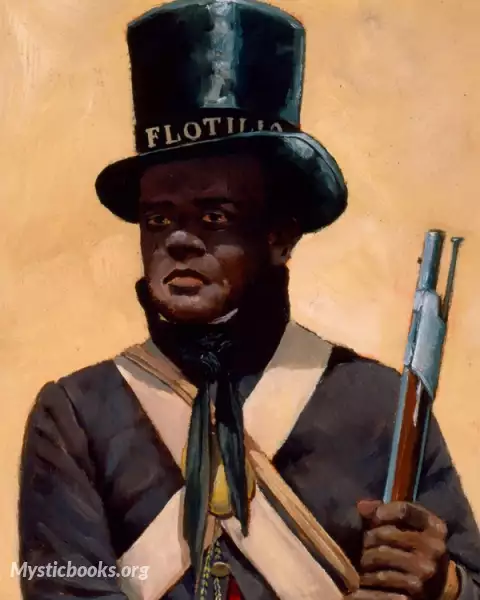
Timeline
Title
Country/Nationality
Charles Ball
Charles Ball real name Charles Gross was an enslaved African-American from Maryland, best known for his account as a fugitive slave, Slavery in the United States (1836).
The main source for Ball's life is his autobiography, Slavery in the United States: A Narrative of the Life and Adventures of Charles Ball, a Black Man, Who Lived Forty Years in Maryland, South Carolina and Georgia, as a Slave Under Various Masters, and was One Year in the Navy with Commodore Barney, During the Late War, published in 1837 with the help of Isaac Fisher. An 1846 re-edited version by Frances Catherine Barnard, The Life of a Negro Slave, was published by Charles Muskett. In 1859, an abridged edition of this autobiography appeared, called Fifty Years in Chains, or, The Life of an American Slave. The 1859 edition only has 430 pages compared with the original 517. Some valuable parts have been omitted in 1859, such as the account of the religion of Ball's African grandfather and all references to Ball's participation in the War of 1812.
Charles Ball was born as a slave in the same county around 1781. He was about four years old when his owner died. To settle the debts, his mother, several brothers and sisters and he himself were sold to different buyers. His first childhood memory recorded in the book is his being brutally separated from his mother by her buyer: "Young as I was, the horrors of that day sank deeply into my heart, and even at this time, though half a century has elapsed, the terrors of the scene return with painful vividness upon my memory."
By way of inheritance, sale and even as a result of a lawsuit, he is passed on to various slaveholders. For two years, starting January 1 of an unknown year around 1800, he is hired out to serve as a cook on the frigate USS Congress that was launched in 1799. After that, he marries Judah. When his eldest son is 4 years old, he is sold to a South Carolinian cotton planter, thus separated from his wife and children who had to remain with their enslaver in Maryland.
In September 1806, he is given as a present to the newly wedded daughter of his owner and has to relocate to Georgia to a new plantation. Shortly afterwards, after the sudden death of the new husband, the new plantation, together with the slaves, including him, is rent out to yet another slaveholder, with whom he builds up a relationship of mutual trust. He becomes the headman on the new plantation, but suffers from the hatred of his master's wife. In 1809, when his dying master is already too weak to interfere, he is cruelly whipped by that woman and her brother. After that, he plans his escape, which he puts into practice after his master's death. Travelling by night to avoid the patrols, using the stars and his obviously excellent memory for orientation, suffering terribly from hunger and cold, not daring to speak to anybody, he returns to his wife and children in early 1810.
In 1816, his wife Judah died. Ball married a second time, Lucy, and was able to buy a small farm from money he had earned and saved. In 1830, he is traced down by the man who whipped him 21 years earlier, kidnapped and again taken to Georgia. He escapes again to learn that Lucy and the children have been kidnapped into slavery and his farm been taken by a white man. Because he legally still is a slave, he is not able to claim his rights, but has to relocate to Pennsylvania where he wrote his 1837 memoir, with the help of the white lawyer Isaac Fisher.
Nothing is known of his later fate, nor of that of his wife or children.
Books by Charles Ball

Fifty Years in Chains; or The Life of an American Slave
This is the story of Charles Ball, an American slave who was born in 1780 and remained a slave for fifty years thereafter. Ball told his story to a lawyer who turned it into this written work.